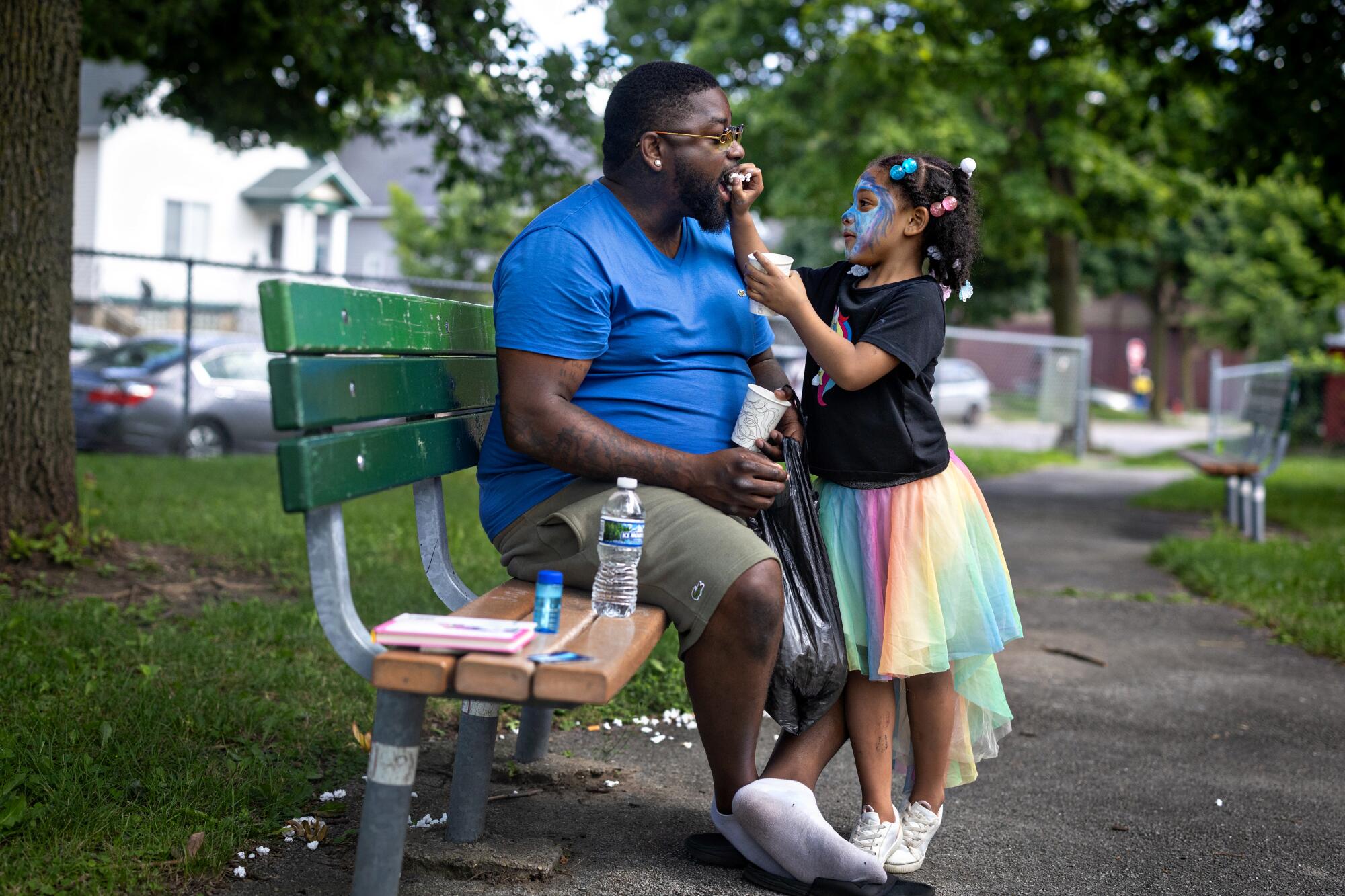
- Share via
MILWAUKEE — Lisa Collins sat in the shade of a green ash tree Wednesday in the Milwaukee neighborhood of Lindsay Heights handing out free hot dogs and hamburgers as part of a “joyful rebellion” against the nearby Republican National Convention.
Though she plans on voting for President Biden in the upcoming election, it is not without trepidation.
“That made me so mad at that debate, I said I’m not voting, I’m just not,” she said of Biden’s awful performance. “But you know I am.”
Hers is a kind of ambivalence common in this part of town, where the dreams of Black Americans have flourished, withered and risen again, in a city and state that will play a critical role in deciding which candidate wins the Oval Office.
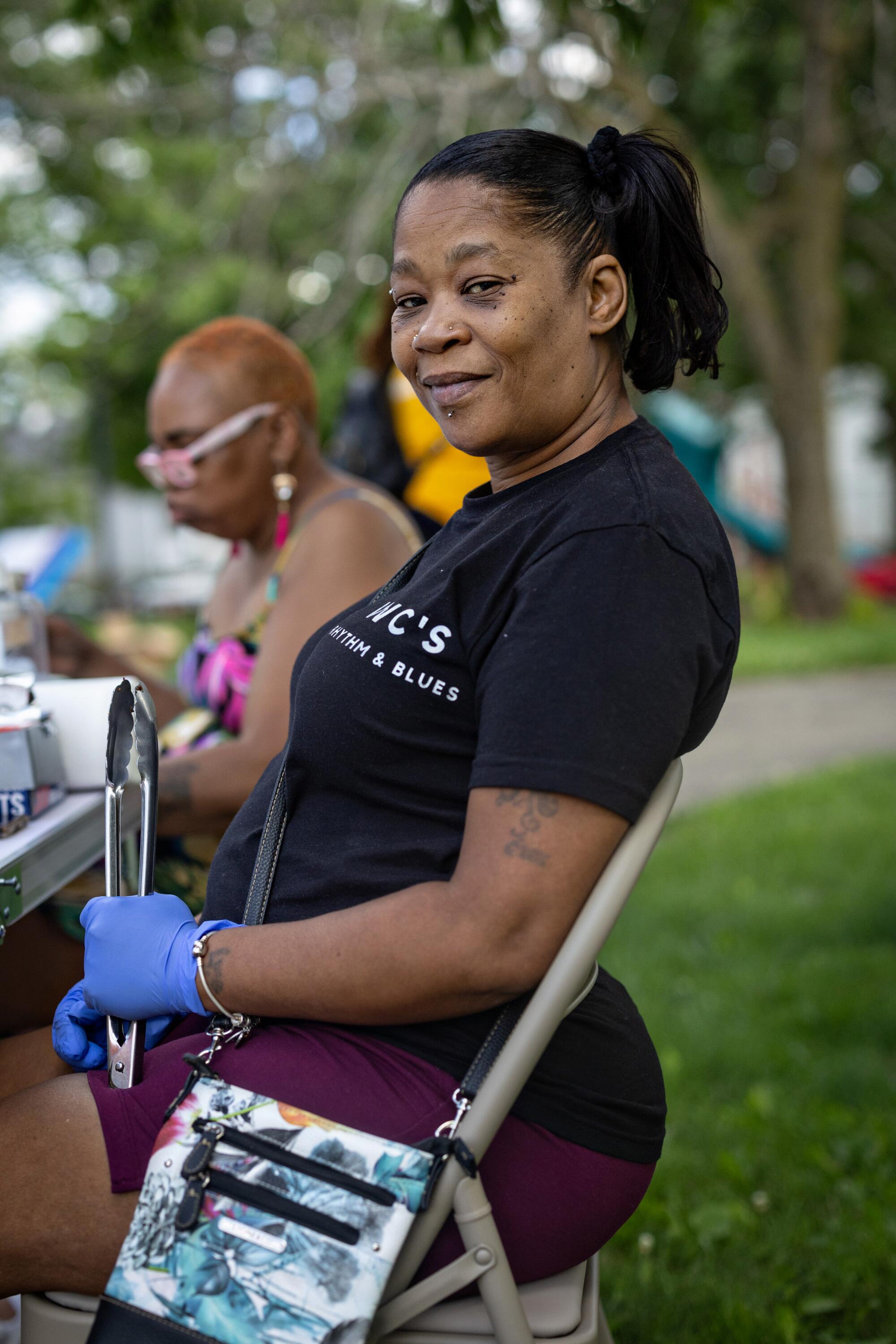
Much of the world is obsessing over big questions: Would a second term for Donald Trump be a step toward authoritarianism? Is Biden mentally competent? Should Biden step aside, and if he did, could Kamala Harris successfully carry a campaign? Should it be left to an open field of Democratic contenders?
But in Lindsay Heights, like many places, a lot of folks have yet to think about the election. Those who have are often uninterested in those soul-searching questions that dominate headlines.
At this event arranged by the Milwaukee Childcare Collective, most people didn’t know they were gathered in response to the convention. They came for the face painting and food, and their concerns are more mundane: teaching kids to read, paying the bills, finding a napkin to clean Popsicle juice off chubby toddler legs.
Deshay Majors, sitting with his son and young daughter, she of the sticky knees, said he has not yet decided whom he will vote for.
“It all depends what they are talking about,” he said of how he will make his decision, though he isn’t sure which issues will sway him, or what he wants to hear.
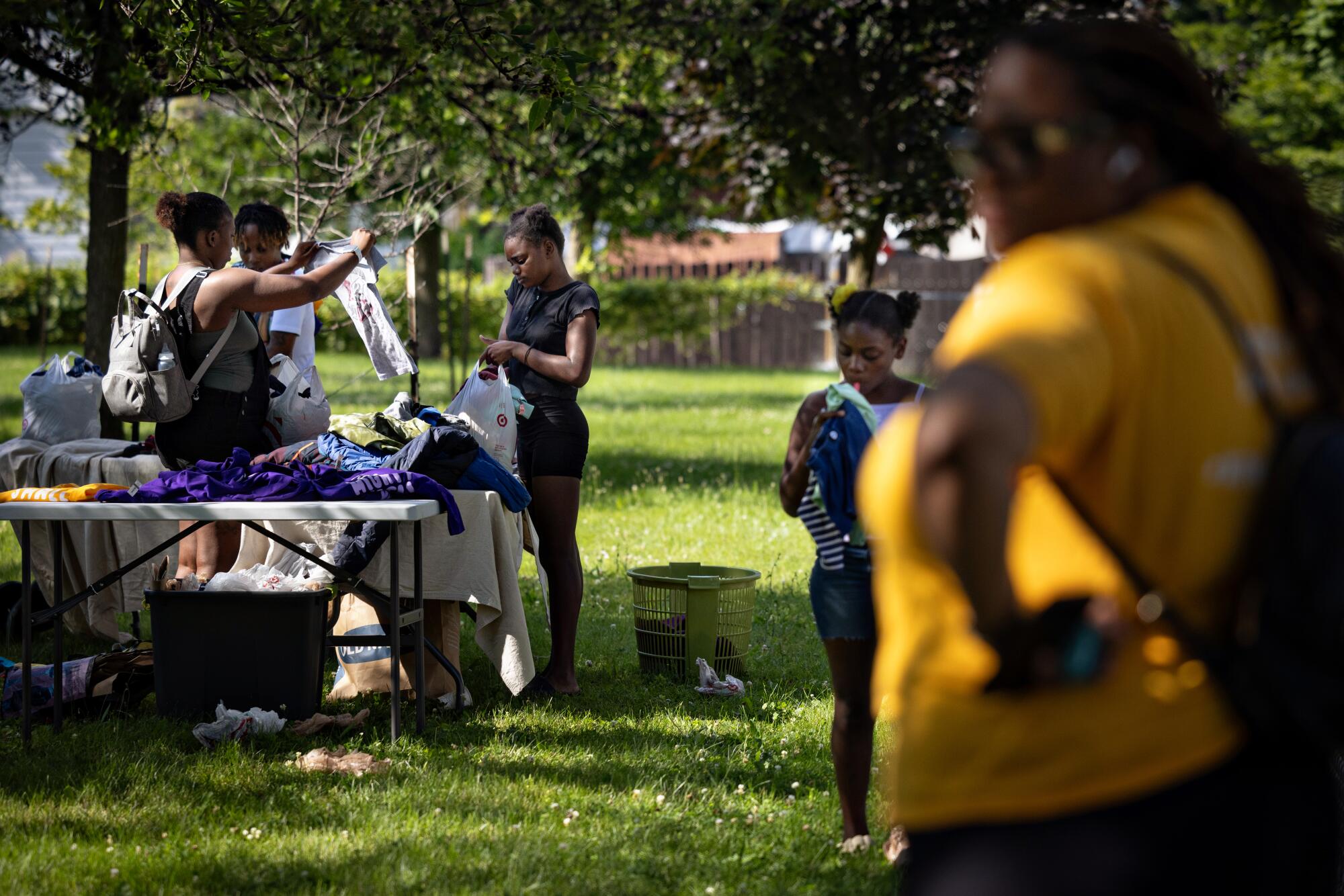
It’s a reminder that it ain’t over until it’s over, but time is running out.
On the national front, there is an air of despondency. Many are convinced that as long as Biden remains atop the ticket, the party is destined to lose the White House. Possibly in a Trump landslide. Very likely in addition to losing control of the Senate.
Even before his debate debacle, Biden was struggling to match his performance four years ago with Black voters, a vital Democratic constituency, especially in swing states.
Paul Maslin, who has been polling and strategizing in political contests since the days of Jimmy Carter, put Biden’s chances of reelection “somewhere between slim and none.”
“And slim,” he said, “is making reservations to leave town.”
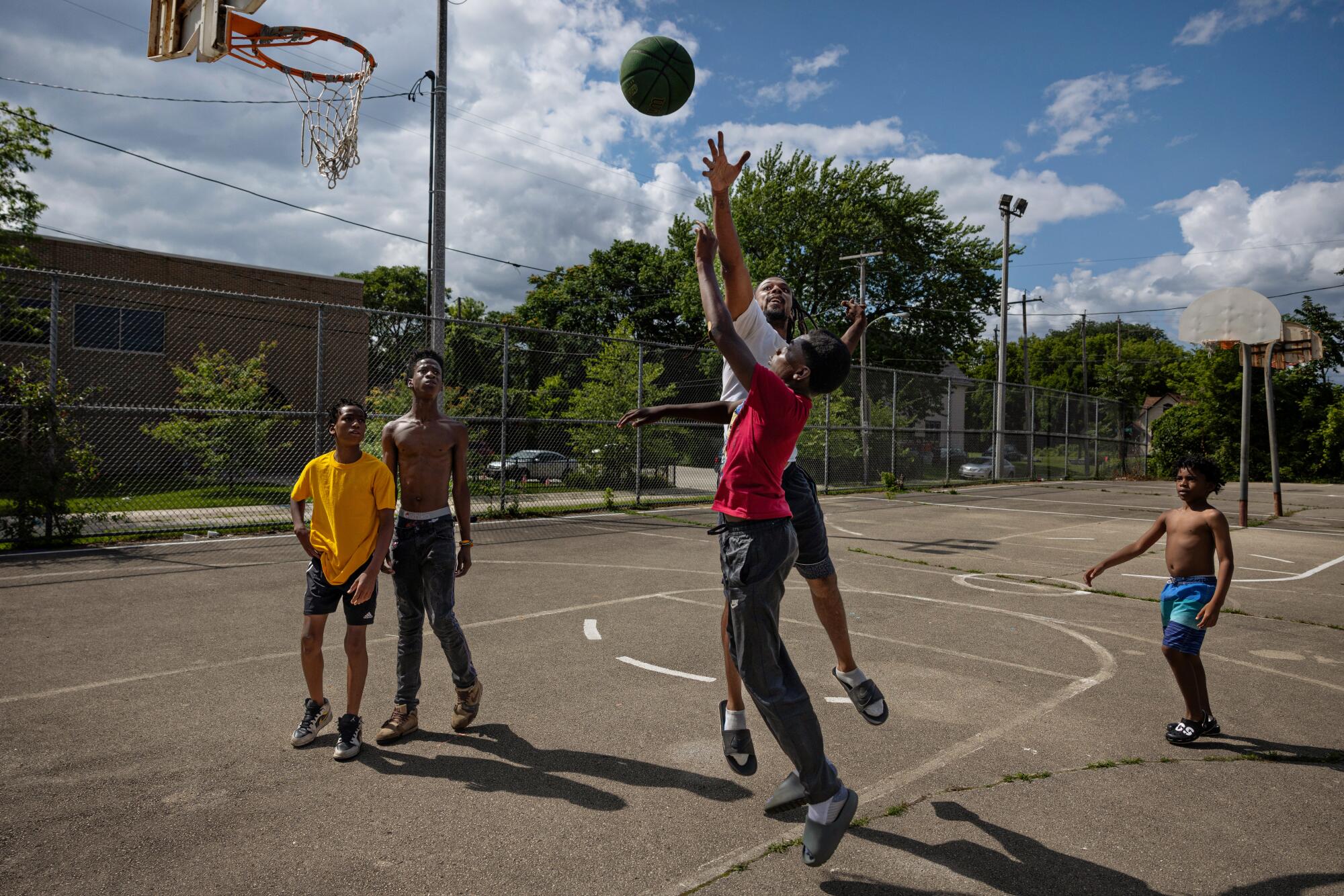
A recent poll by the Associated Press and University of Chicago found nearly two-thirds of Democrats surveyed said Biden should withdraw from the presidential race and let his party nominate someone else.
Biden’s standing with independent and undecided voters is even worse, said Maslin, who has decades of experience in Wisconsin politics.
“His campaign has to have told him, or should be telling him, ‘Mr. President, one thing the voters you need to win this election have in common is they don’t like you,’ ” Maslin said. “They owe it to themselves, to him, to the party, to the country.”
The upper echelon of Democrats (those “elites” Biden has taken to railing against) are voting with their wallets.
“I can tell you, having talked to a lot of donors, their depression and despair has curdled into anger,” said Paul Begala, a strategist who twice helped put Bill Clinton in the White House. “They’re very angry. And angry people don’t donate.”
But that outrage hasn’t reached this parklet, where the basketball hoops lack nets and the closest bathroom is in a nearby church.
The area is named for Bernice Lindsay, the first Black woman to obtain a journalism degree from Ohio State University. She moved to these narrow streets north of downtown in the 1920s, intent on helping to create a place where Black professionals could own homes and raise families. For awhile, the community thrived — until freeways, violence and neglect tumbled it into decline, like so many other minority enclaves in America.
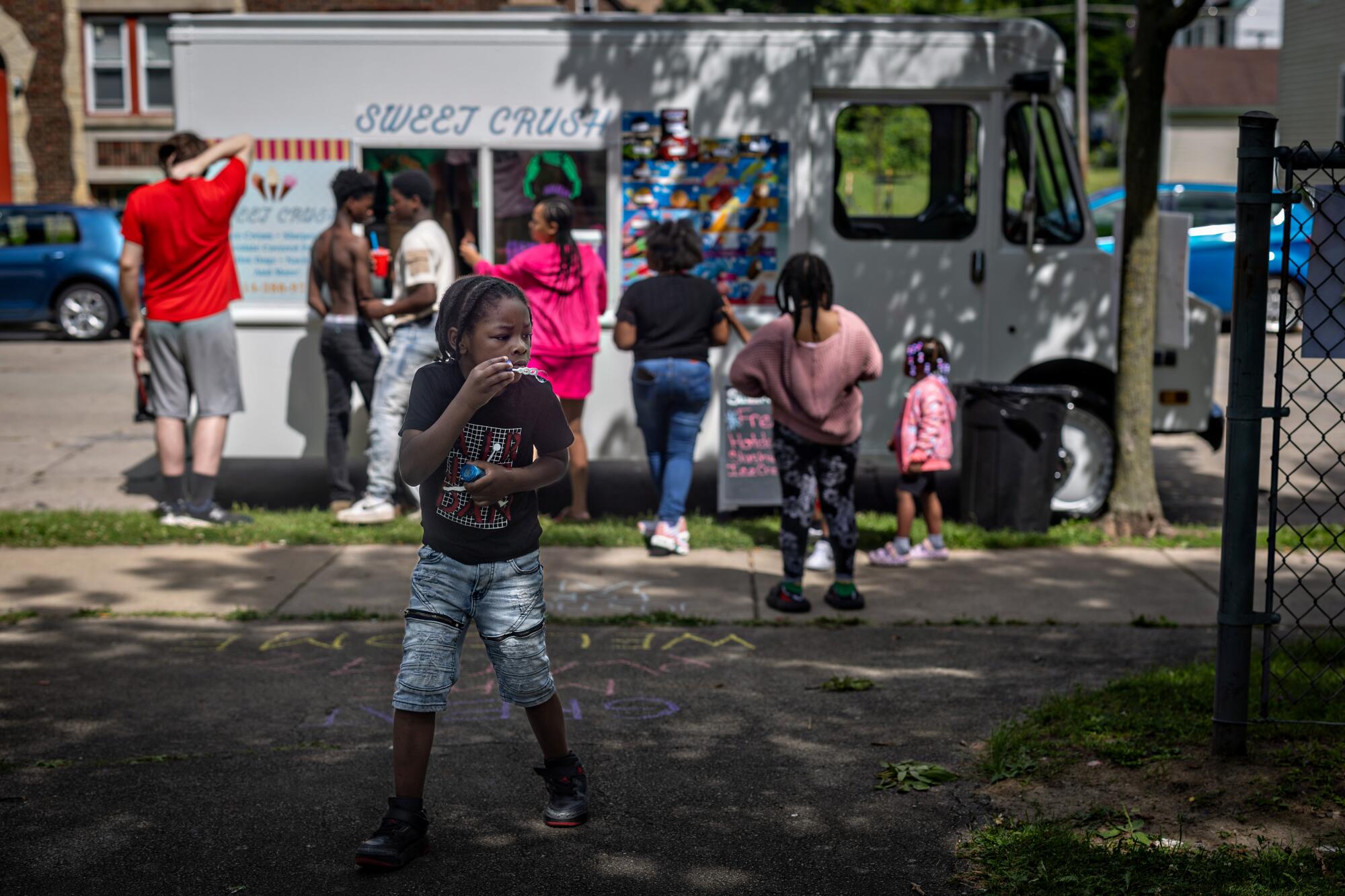
Now, it’s a community working to raise itself back up. Vacant-lot gardens grow strawberries, and residents organize to help themselves and win what they need from a government that has too often passed them by — Democrat or Republican.
Some of the Victorian and Queen Anne homes are fixed up, some are boarded up, and most have front porches where people gather.
Sheyenne Wilson, 25, has been visiting those porches to talk about Biden, though the organizer says she likes to mostly listen.
What she hears isn’t pro-Biden or pro-Trump, but more pro-Lindsay Heights.
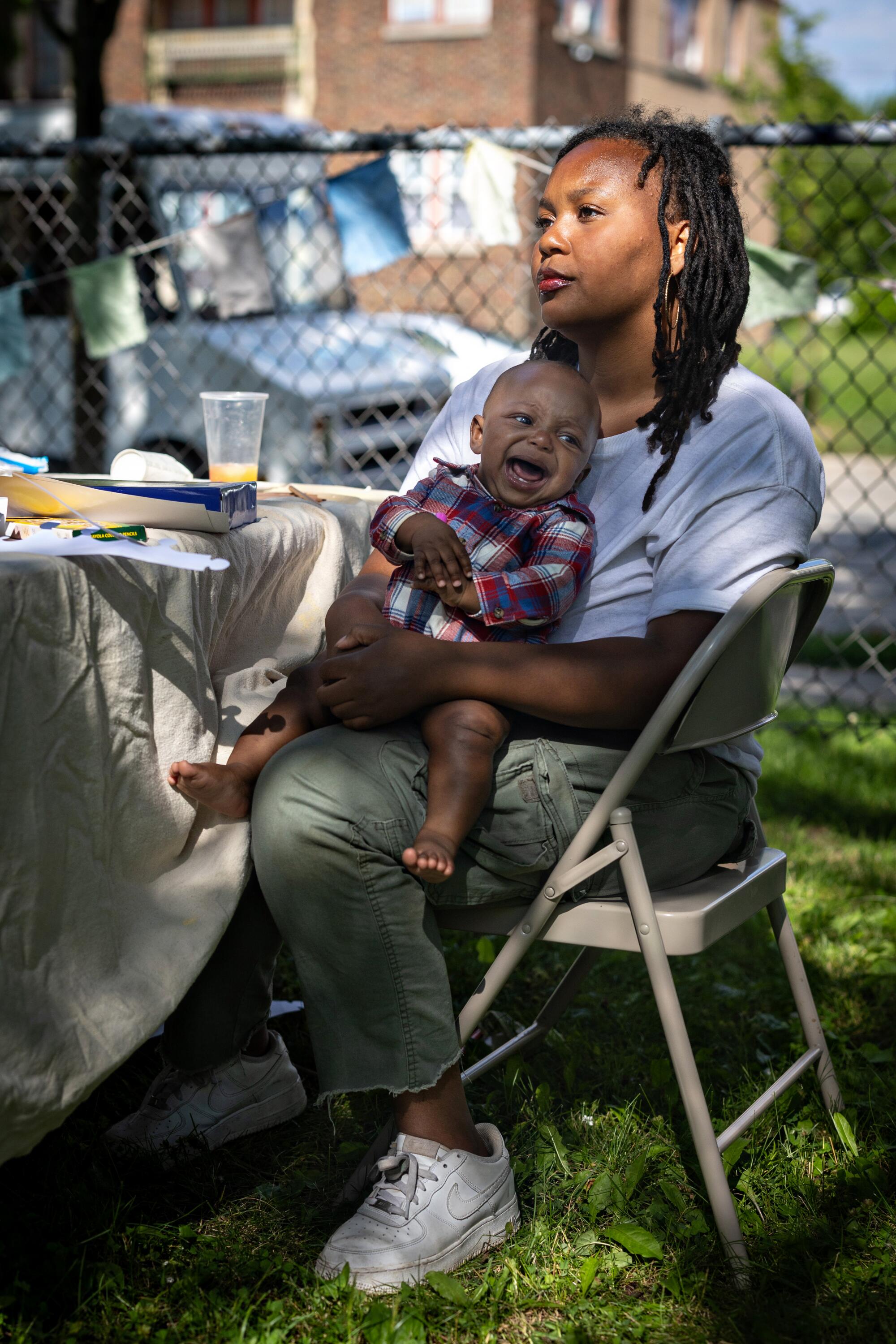
“Basically people want someone who will support the community,” she said, her 10-month-old son, Khalif, on her lap.
That, said her fellow organizer Trasus Wright, is the opening he uses. He sees abortion as the kind of personal issue that can move voters — even his wife, Dea Wright, is undecided.
Dea Wright likes Trump’s stance on school choice — their six children benefited from such a program, she said.
“Where Trump gets me is where they start saying Christianity in schools,” she said.
Trasus Wright said he isn’t bothered by his wife’s uncertainty because he believes that “Joe is going to bring her around. His policies around advocating for women are going to be what matters.”
And what of Biden being too old?
“They’re both old,” said Eric Donelson, unbothered by reports of Biden’s mental decline as he ate a hamburger.
And what about Vice President Kamala Harris? Would she be a better candidate?
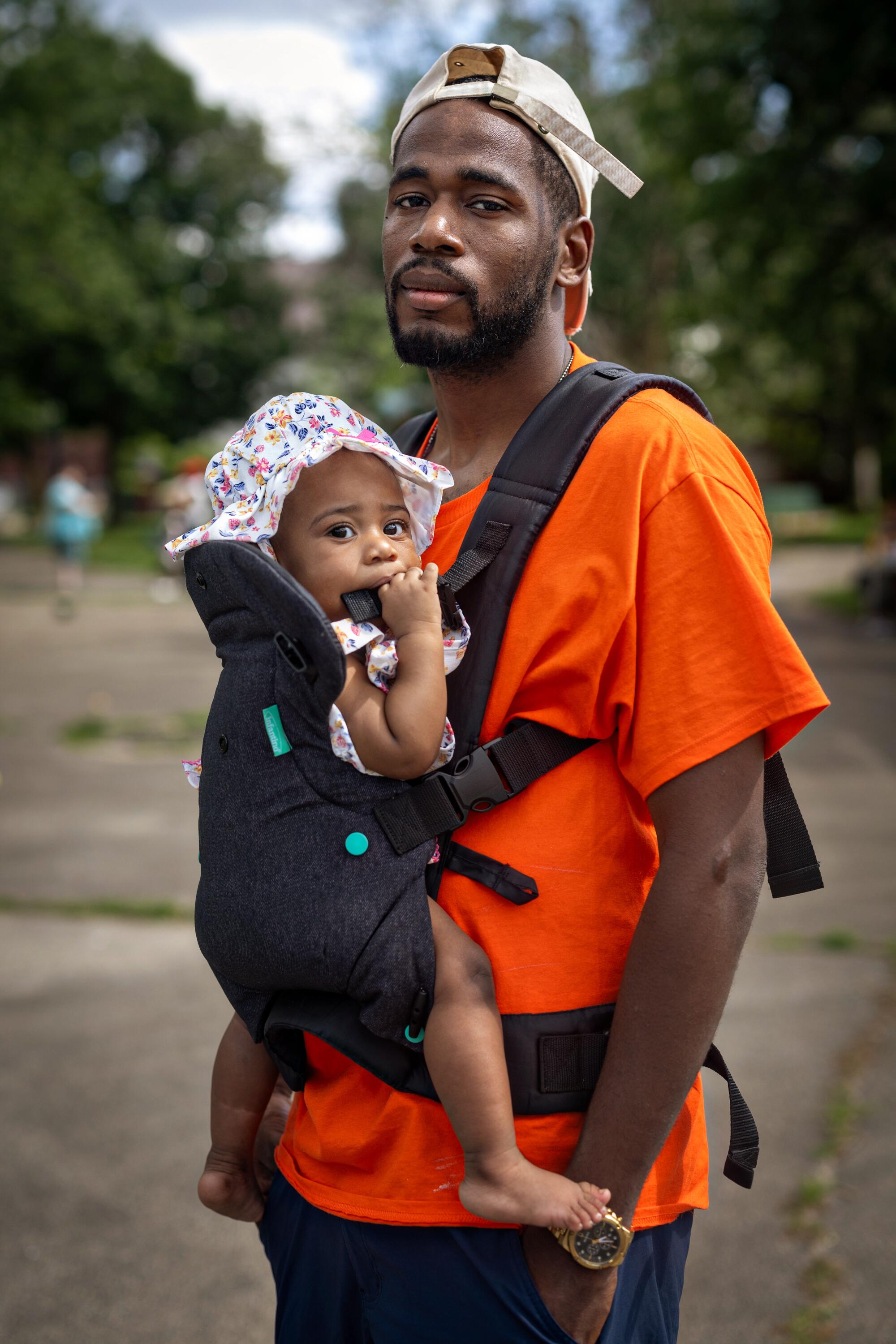
“Do we vote for somebody just because they look like us, or for what they represent?” said Wilson, who has concerns about Harris’ prosecutor past.
“I still don’t think there will ever be a lady president,” said Collins, the woman handing out food.
“We forget she’s vice president. She don’t talk,” Donelson said. “Speak up, woman.”
And as for anyone else? There aren’t any names familiar enough to warrant an opinion.
But Trump is no shoo-in here, either — despite his push for Black voters in recent weeks, including a convention airing of an Amber Rose/Forgiato Blow rap video meant to show the party’s inclusiveness.
“I am not voting for Trump, I’m letting you know. I don’t like nothing about Trump, I am going to keep it real,” Donelson said.
“Trump’s got a little more energy in his body than Biden,” Collins argued.
“Biden is getting old, but I’d rather work with old, senile than a crazy man,” Donelson shot back.
“I’m going to tell you something. I said, this is all a mess to me,” Collins said.
What Linsday Heights shows is the disconnect between the political elite and the voters, for either party.
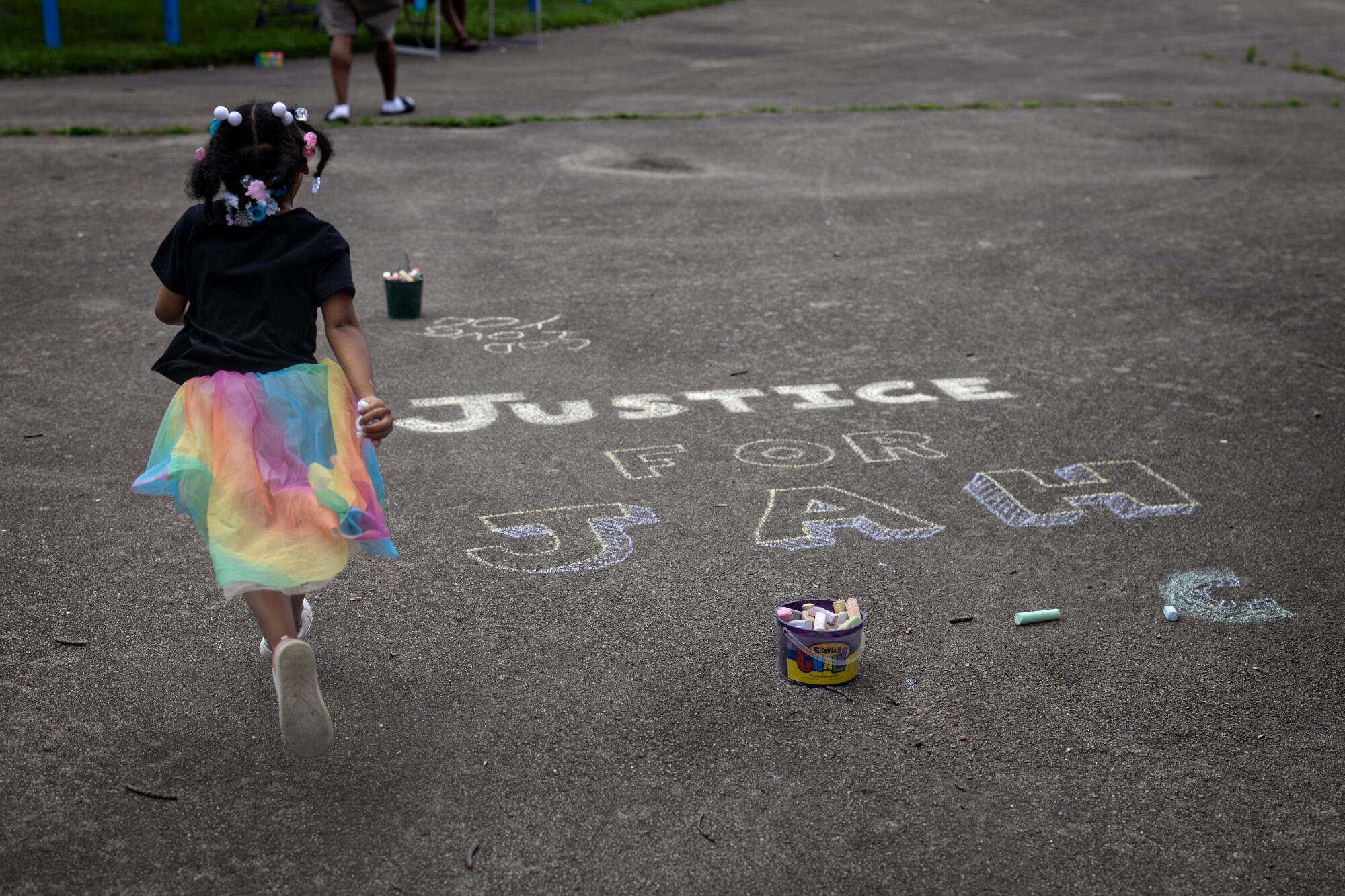
Biden will have to decide in a matter of days if he is staying or leaving — and the pressure has grown intense.
Democrats are set to have a virtual roll call for delegates in early August to formally pledge their allegiance. Once that is done, it becomes increasingly hard for another candidate to step in.
But for the voters in Lindsay Heights, mistrustful of politics and concerned about daily life, time is running out for either party to reach them with a message that carries enough meaning to carry them to the polls.
If that neglect continues, it probably won’t make much of a difference what Biden decides.
More to Read
Get the L.A. Times Politics newsletter
Deeply reported insights into legislation, politics and policy from Sacramento, Washington and beyond. In your inbox twice per week.
You may occasionally receive promotional content from the Los Angeles Times.












